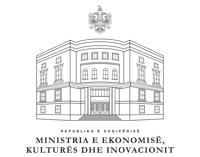Importing goods into Albania involves several steps to ensure compliance with local regulations. Here’s a detailed guide:
1. Register Your Business
- Ensure your business is registered in Albania or your home country.
- For foreign entities, consider opening a local branch or working with an Albanian partner.
- Obtain a tax identification number (NIPT) from Albania’s tax authorities if establishing a local presence.
2. Verify Import Regulations
- Familiarize yourself with Albania’s import regulations, which are aligned with many EU standards.
- Contact the Albanian Customs Authority or the Albanian Investment Development Agency (AIDA) for guidance.
3. Classify Your Goods
- Use Harmonized System (HS) codes to classify your goods accurately.
- Check if your products fall under any restricted or prohibited categories.
4. Check Tariffs and Taxes
- Identify applicable import duties and taxes for your goods.
- Albania imposes a 15% VAT on most imports and varying customs duties based on the product type.
- Some goods may benefit from reduced or zero tariffs under trade agreements (e.g., with the EU or CEFTA countries).
5. Obtain Necessary Licenses and Permits
- Determine if special licenses or permits are needed for your goods (e.g., for pharmaceuticals, food, or chemicals).
- Apply through relevant Albanian authorities if required.
6. Arrange Logistics and Shipping
- Select a reputable shipping company with experience in the Balkans.
- Albania’s primary port of entry is Durres, but other options, such as air freight through Tirana International Airport, are available.
- Ensure all shipping documents (e.g., bill of lading, commercial invoices) are accurately completed.
7. Prepare Import Documentation
- Include the following required documents:
- Commercial invoices
- Packing lists
- Certificates of origin
- Bill of lading or airway bill
- Import licenses or permits (if applicable)
- Ensure compliance with Albanian customs requirements.
8. Customs Clearance
- Work with a licensed customs broker to facilitate the clearance process.
- Pay any applicable duties, VAT, and other taxes required for the import.
9. Receive and Distribute Goods
- Arrange for the delivery of goods to your desired location after customs clearance.
- Establish distribution channels or partnerships within Albania to ensure smooth market entry.
Key Contacts
- Albanian Customs Authority:
- Albanian Investment Development Agency (AIDA):

 Tel: +355 42 251 001
Tel: +355 42 251 001 Tel: +355 42 232 988
Tel: +355 42 232 988
 Email:
Email: 
